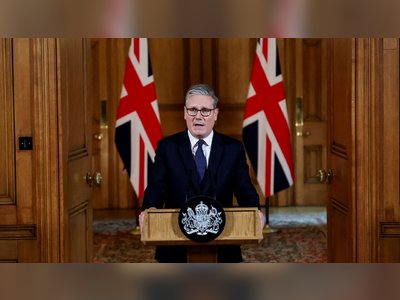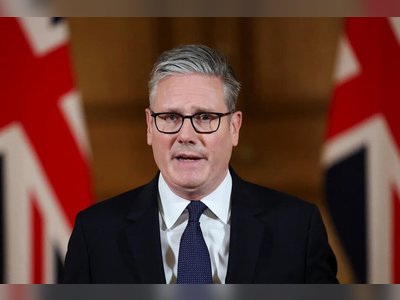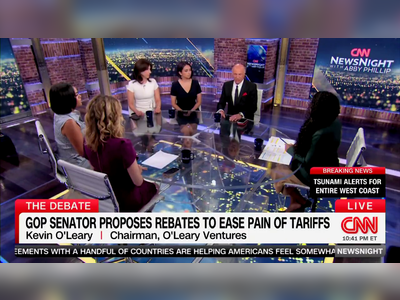
Meta's Partnership with Trump: A Worldwide Shift in Information, Economy, and Geopolitics
The recent adjustments Mark Zuckerberg has made to Meta's content moderation, along with its partnership with Trump, could significantly influence the credibility of information, international policies, and the worldwide economy.
On January 7, 2025, Meta CEO Mark Zuckerberg made a notable announcement about changes to his company's content moderation policies, which could transform digital landscapes worldwide.
Zuckerberg's choice to reduce fact-checking, introduce 'community notes' for content assessment, and cut down moderation staff has sparked controversy, particularly among experts worried about undermining information integrity and the spread of disinformation.
While the move is positioned as a protection of 'freedom of expression,' it aligns Meta with a broader political agenda resembling former President Donald Trump's rhetoric.
In his statement, Zuckerberg pledged to cooperate with the incoming Trump administration, vowing to resist growing international censorship laws, especially in Europe, Latin America, and China.
This partnership indicates a shift towards prioritizing 'civic content'—user views—over verified facts.
Zuckerberg’s plan also reflects actions taken by Elon Musk’s X platform, which has been criticized for spreading misinformation.
Critics contend that by adopting subjective opinions instead of fact-based moderation, Meta will worsen the global spread of misinformation, hate speech, and far-right ideologies.
Research suggests that misinformation thrives in emotionally charged settings, and Zuckerberg’s decision could further destabilize public discourse globally.
The geopolitical impact is clear, with Meta’s actions aligning with Trump’s vision of a worldwide battle against policies enforcing digital rights and moderation.
João Brant, Brazil’s Secretary of Digital Policies, emphasized how this cooperation undermines national sovereignty in digital domains, especially in countries like Brazil, Europe, and Australia, which aim to regulate online content and competition.
Economically, Meta’s decision reflects wider concerns about the power of American tech giants and their impact on the global digital economy.
The consolidation of power within the 'Big Tech' oligopoly—Meta, Google, Amazon, Apple, and Microsoft—has already prompted worries about data monopolies, digital colonialism, and the stifling of local innovation, notably in developing countries.
As these companies continue to amass political and economic influence, their ability to shape information flows, global governance, and even the distribution of economic resources is undeniable.
For many countries, including those in the Global South, the increasing influence of U.S. platforms poses serious questions about fairness, sovereignty, and the manipulation of public opinion.
As Zuckerberg’s modifications take effect, the world is at a critical juncture.
Will nations like Brazil, Europe, and others intensify efforts to regulate digital spaces and uphold information integrity?
Or will the growing dominance of platforms like Meta and X further tip the balance of power in favor of billionaires and populist agendas?
The result of this digital contest could significantly influence the future of global politics and economics.
Zuckerberg's choice to reduce fact-checking, introduce 'community notes' for content assessment, and cut down moderation staff has sparked controversy, particularly among experts worried about undermining information integrity and the spread of disinformation.
While the move is positioned as a protection of 'freedom of expression,' it aligns Meta with a broader political agenda resembling former President Donald Trump's rhetoric.
In his statement, Zuckerberg pledged to cooperate with the incoming Trump administration, vowing to resist growing international censorship laws, especially in Europe, Latin America, and China.
This partnership indicates a shift towards prioritizing 'civic content'—user views—over verified facts.
Zuckerberg’s plan also reflects actions taken by Elon Musk’s X platform, which has been criticized for spreading misinformation.
Critics contend that by adopting subjective opinions instead of fact-based moderation, Meta will worsen the global spread of misinformation, hate speech, and far-right ideologies.
Research suggests that misinformation thrives in emotionally charged settings, and Zuckerberg’s decision could further destabilize public discourse globally.
The geopolitical impact is clear, with Meta’s actions aligning with Trump’s vision of a worldwide battle against policies enforcing digital rights and moderation.
João Brant, Brazil’s Secretary of Digital Policies, emphasized how this cooperation undermines national sovereignty in digital domains, especially in countries like Brazil, Europe, and Australia, which aim to regulate online content and competition.
Economically, Meta’s decision reflects wider concerns about the power of American tech giants and their impact on the global digital economy.
The consolidation of power within the 'Big Tech' oligopoly—Meta, Google, Amazon, Apple, and Microsoft—has already prompted worries about data monopolies, digital colonialism, and the stifling of local innovation, notably in developing countries.
As these companies continue to amass political and economic influence, their ability to shape information flows, global governance, and even the distribution of economic resources is undeniable.
For many countries, including those in the Global South, the increasing influence of U.S. platforms poses serious questions about fairness, sovereignty, and the manipulation of public opinion.
As Zuckerberg’s modifications take effect, the world is at a critical juncture.
Will nations like Brazil, Europe, and others intensify efforts to regulate digital spaces and uphold information integrity?
Or will the growing dominance of platforms like Meta and X further tip the balance of power in favor of billionaires and populist agendas?
The result of this digital contest could significantly influence the future of global politics and economics.











